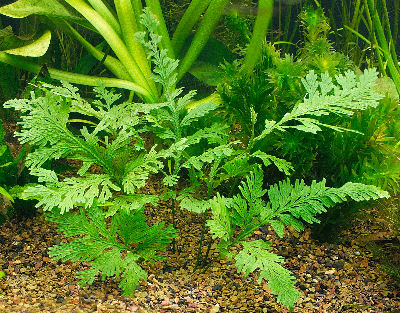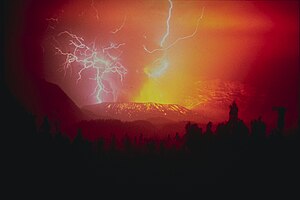
“The future will belong to the nature-smart—those individuals, families, businesses, and political leaders who develop a deeper understanding of the transformative power of the natural world and who balance the virtual with the real. The more high-tech we become, the more nature we need.”
—Richard Louv
The immediacy of Richard Louv's message in Last Child in the Woods: Saving Our Children from Nature-Deficit Disorder galvanized an international movement to reconnect children with nature. Now, in The Nature Principle, Louv reaches even further with a powerful call to action for the rest of us.
Our society, says Louv, has developed such an outsized faith in technology that we have yet to fully realize or even adequately study how human capacities are enhanced through the power of nature. Supported by groundbreaking research, anecdotal evidence, and compelling personal stories, Louv shows us how tapping into the restorative powers of the natural world can boost mental acuity and creativity; promote health and wellness; build smarter and more sustainable businesses, communities, and economies; and ultimately strengthen human bonds. As he says in his introduction, The Nature Principle is "about the power of living in nature—not with it, but in it. We are entering the most creative period in history. The twenty-first century will be the century of human restoration in the natural world."
Richard Louv makes a convincing case that through a nature-balanced existence—driven by sound economic, social, and environmental solutions—the human race can and will thrive. This timely, inspiring, and important work will give readers renewed hope while challenging them to rethink the way we live.




 In modern terms, natural philosophy roughly corresponded to modern physics and chemistry, while natural history included the biological and geological sciences.
Modern definitions of natural history come from a variety of fields and sources, and many of the modern definitions emphasize a particular aspect of the field, creating a plurality of definitions with a number of common themes among them.
Modern definitions from biologists often focus on the scientific study of individual organisms in their environment, as seen in this definition by Marston Bates: "Natural history is the study of animals and Plants - of organisms.
Because organisms are functionally inseparable from the environment in which they live and because their structure and function cannot be adequately interpreted without knowing some of their evolutionary history, the study of natural history embraces the study of fossils as well as physiographic and other aspects of the physical environment". A common thread in many definitions of natural history is the inclusion of a descriptive component, as seen in a recent definition by H.W.
A slightly different, but equally expansive framework for natural history is also implied in the scope of work encompassed by many leading natural history museums, which often include elements of Anthropology, Geology, Paleontology and Astronomy along with Botany and Zoology, or include both cultural and natural components of the world.
In modern terms, natural philosophy roughly corresponded to modern physics and chemistry, while natural history included the biological and geological sciences.
Modern definitions of natural history come from a variety of fields and sources, and many of the modern definitions emphasize a particular aspect of the field, creating a plurality of definitions with a number of common themes among them.
Modern definitions from biologists often focus on the scientific study of individual organisms in their environment, as seen in this definition by Marston Bates: "Natural history is the study of animals and Plants - of organisms.
Because organisms are functionally inseparable from the environment in which they live and because their structure and function cannot be adequately interpreted without knowing some of their evolutionary history, the study of natural history embraces the study of fossils as well as physiographic and other aspects of the physical environment". A common thread in many definitions of natural history is the inclusion of a descriptive component, as seen in a recent definition by H.W.
A slightly different, but equally expansive framework for natural history is also implied in the scope of work encompassed by many leading natural history museums, which often include elements of Anthropology, Geology, Paleontology and Astronomy along with Botany and Zoology, or include both cultural and natural components of the world. We are particularly interested in attracting research articles on the genetic architecture of plant traits and crop plant performance, fundamental functional genomics of plant growth and development, natural and agricultural variation in plant species, and genomic methods for studying genetic and gene-environment variation.
We are particularly interested in attracting research articles on the genetic architecture of plant traits and crop plant performance, fundamental functional genomics of plant growth and development, natural and agricultural variation in plant species, and genomic methods for studying genetic and gene-environment variation.
 In seeking research papers, we will progressively move from the identification of mutations and quantitative trait loci, first reference genomes and new components of existing developmental pathways to emphasize in particular the use of genomic resources for new biology (for example, see page 530) and for solving agricultural challenges.
Together with marker-assisted plant breeding, research and the development of genetically modified crop plants (GMOs) have an important place in the future of plant science
Expanding upon the genetic discovery effort of which we are a part, Nature Plants (http://www.nature.com/nplants/) will also engage with the social and economic dimensions of plant science, climate change, policy-ready science, food security and distribution, and the next green revolution.
In seeking research papers, we will progressively move from the identification of mutations and quantitative trait loci, first reference genomes and new components of existing developmental pathways to emphasize in particular the use of genomic resources for new biology (for example, see page 530) and for solving agricultural challenges.
Together with marker-assisted plant breeding, research and the development of genetically modified crop plants (GMOs) have an important place in the future of plant science
Expanding upon the genetic discovery effort of which we are a part, Nature Plants (http://www.nature.com/nplants/) will also engage with the social and economic dimensions of plant science, climate change, policy-ready science, food security and distribution, and the next green revolution.





 Natura was a Latin translation of the Greek word physis ( ), which originally related to the intrinsic characteristics that plants, animals, and other features of the world develop of their own accord. The concept of nature as a whole, the physical universe, is one of several expansions of the original notion; it began with certain core applications of the word by pre-Socratic philosophers, and has steadily gained currency ever since.
Natura was a Latin translation of the Greek word physis ( ), which originally related to the intrinsic characteristics that plants, animals, and other features of the world develop of their own accord. The concept of nature as a whole, the physical universe, is one of several expansions of the original notion; it began with certain core applications of the word by pre-Socratic philosophers, and has steadily gained currency ever since.